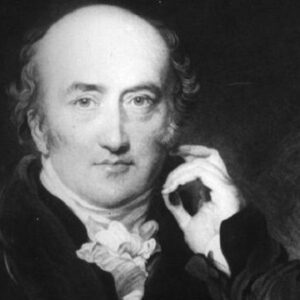George Canning was a British politician who rose through the ranks of the British government to become Foreign Secretary and Prime Minister. During his time in parliament, he represented a number of different constituencies. His skillful delivery of speeches earned him favor in the Cabinet. The Addington government set up a military post in Trinidad to settle the island’s land issue as a result of his successful campaign. He also took the effort to demonstrate that better land farming methods can reduce the necessity for slaves. Canning’s efforts saved around 750,000 lives. He used to publish humorous pieces and poetry in the “Anti-Jacobin” journal. He used to mock revolutionary ideologies by supporting the government. He was a pivotal figure in the affairs of Spain, Portugal, and Latin America, and his key decisions shaped the path of Latin American history. He championed the abolition of slavery during his time as Foreign Secretary and Leader of the House of Commons. He was also against Russia and France interfering in the affairs of other countries. As a result, he gained a reputation as a liberal. He also prohibited the United States from establishing trading relations with the West Indies. He was Prime Minister of the United Kingdom for a short time.
Childhood and Adolescence
He was the son of George Canning Senior and Mary Anne Costello, and was born in Marylebone, London, into an old Irish family. On his son’s first birthday, his father, a failed wine trader and lawyer, abandoned the family and died in poverty.
His mother began acting as a stage actress when his father died, and he was reared by his uncle, London merchant Stratford Canning, and his relatives.
He was a student at Hyde Abbey School. He went on to Eton College, where he became well-known for his literary abilities. Following that, he enrolled at Christ Church, Oxford, where he earned his BA in 1791.
Career of George Canning
He began practicing law after completing his studies. He afterwards changed his mind and opted to pursue a political career. Charles James Fox, Edmund Burke, and Richard Brinsley Sheridan were among the famous Whigs introduced to him by his uncle, Stratford Canning.
In 1793, he became a Member of Parliament for Newtown on the Isle of Wight, a rotten borough, with the help of William Pitt, the leader of the “Troy” faction.
Because of his gift of gab, he progressed fast in British politics. In addition, he became well-known for his literary abilities. He was promoted to the Cabinet in a short time due to his oratory skills and good essay writing style.
A group of people known as the Canningites backed him up because of his leadership abilities. Because to his domineering attitude, he frequently lost political supporters due to personal issues.
His first ministerial post was as Under Secretary of State for Foreign Affairs, which he held on November 2, 1795. During this time, he frequently sided with Pitt in disagreements with Lord Grenville, the Foreign Secretary.
On April 1, 1799, he resigned from his position as Foreign Minister. He then became a Commissioner of the Indian Board of Control. He held this position until 1800.
He served as Paymaster of the Forces in the year 1800. Pitt resigned from his position as Prime Minister in February 1801, citing the King’s resistance to Catholic Emancipation as the reason for his departure.
He proclaimed his support for the declaration of war against France in 1803. The following year, he was appointed Treasurer of the Navy, but he resigned in 1805 when Addington was appointed to the Cabinet.
In 1807, he assumed the position of Foreign Secretary in the Duke of Portland’s new cabinet. During the Napoleonic Wars, he served as Foreign Secretary and was heavily involved in the planning of the attack on Copenhagen.
In 1809, he actively opposed Lord Castlereagh, Secretary of State for War and the Colonies, in his decision to send soldiers to the Netherlands. He fought Castlereagh in a duel on Putney Heath in September as a result of their feud. In the duel, he was hurt. The two cabinet ministers’ actions sparked widespread outrage. He resigned from his office after Portland resigned as Prime Minister.
Lord Liverpool, the new Prime Minister, gave him the office of Foreign Secretary in 1812. He turned down the offer because he wanted to be the Speaker of the House of Commons.
He served as the British Ambassador to Portugal in 1814. He was elected President of the Board of Control in 1816, but resigned in 1820 due to his closeness with Queen Caroline.
He was Foreign Secretary and Leader of the House of Commons in 1822. He was effective in keeping South America out of the French area of influence at the time.
George IV appointed him Prime Minister of the United Kingdom in 1827. Canning, on the other hand, found it difficult to establish a government because the Tory party was split between “high Tories” and “Canningites.” He was only Prime Minister for 119 days.
Personal History and Legacy
He married Joan Scott in 1800 and had four children with her. He had an extramarital affair with Queen Caroline, King George IV’s wife. He died while serving as Prime Minister of the United Kingdom due to his deteriorating health.
Estimated net worth
The estimated net worth of George Canning is unknown.
Trivia
This well-known politician responded to George Tierney’s resolution calling for peace talks with France. He gave a speech on this occasion that Pitt described as “one of the best ever heard on any occasion.”
He is well-known as the first British Foreign Secretary to play a significant role in Latin American issues, to which he devoted most of his time.


